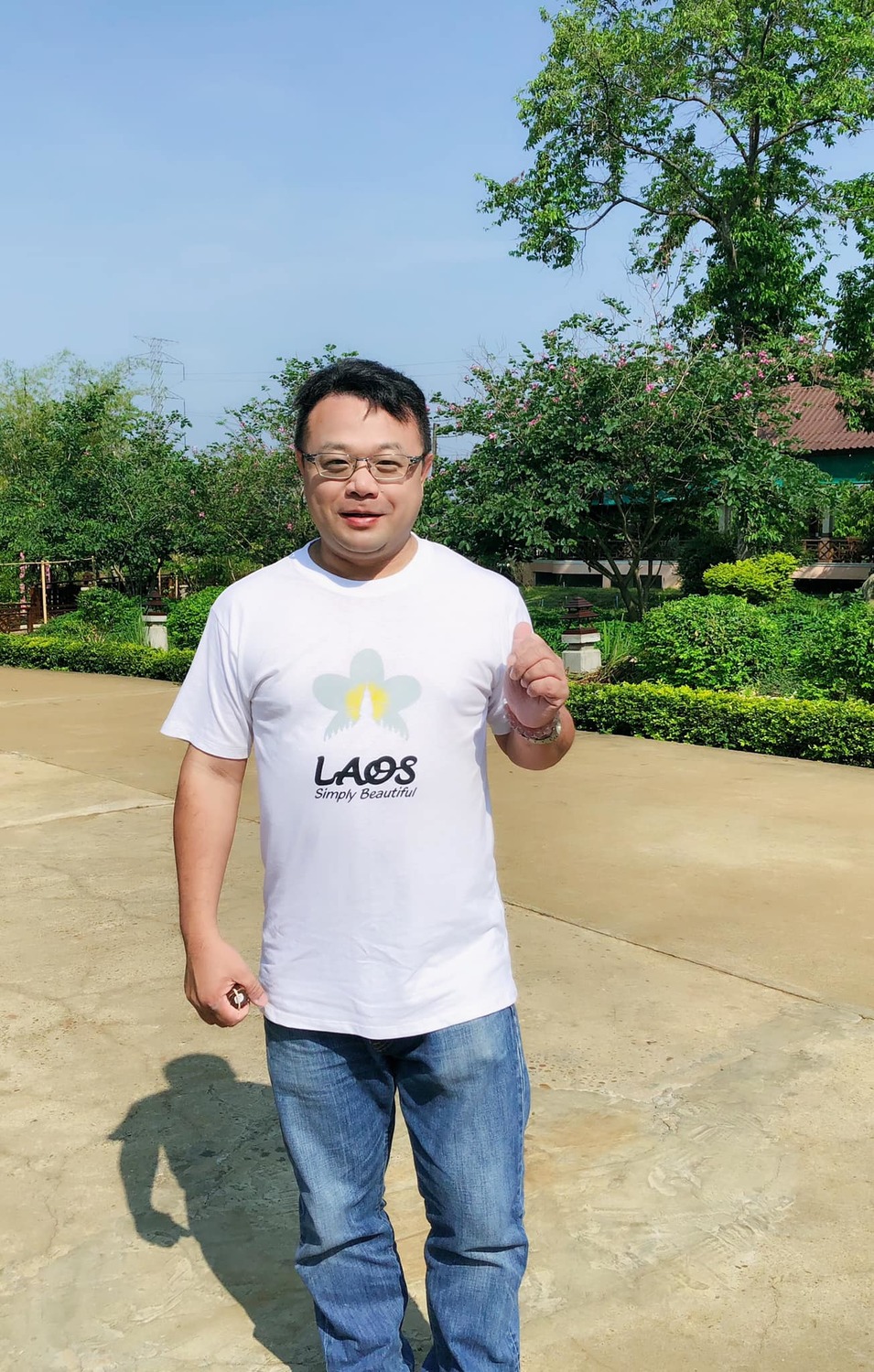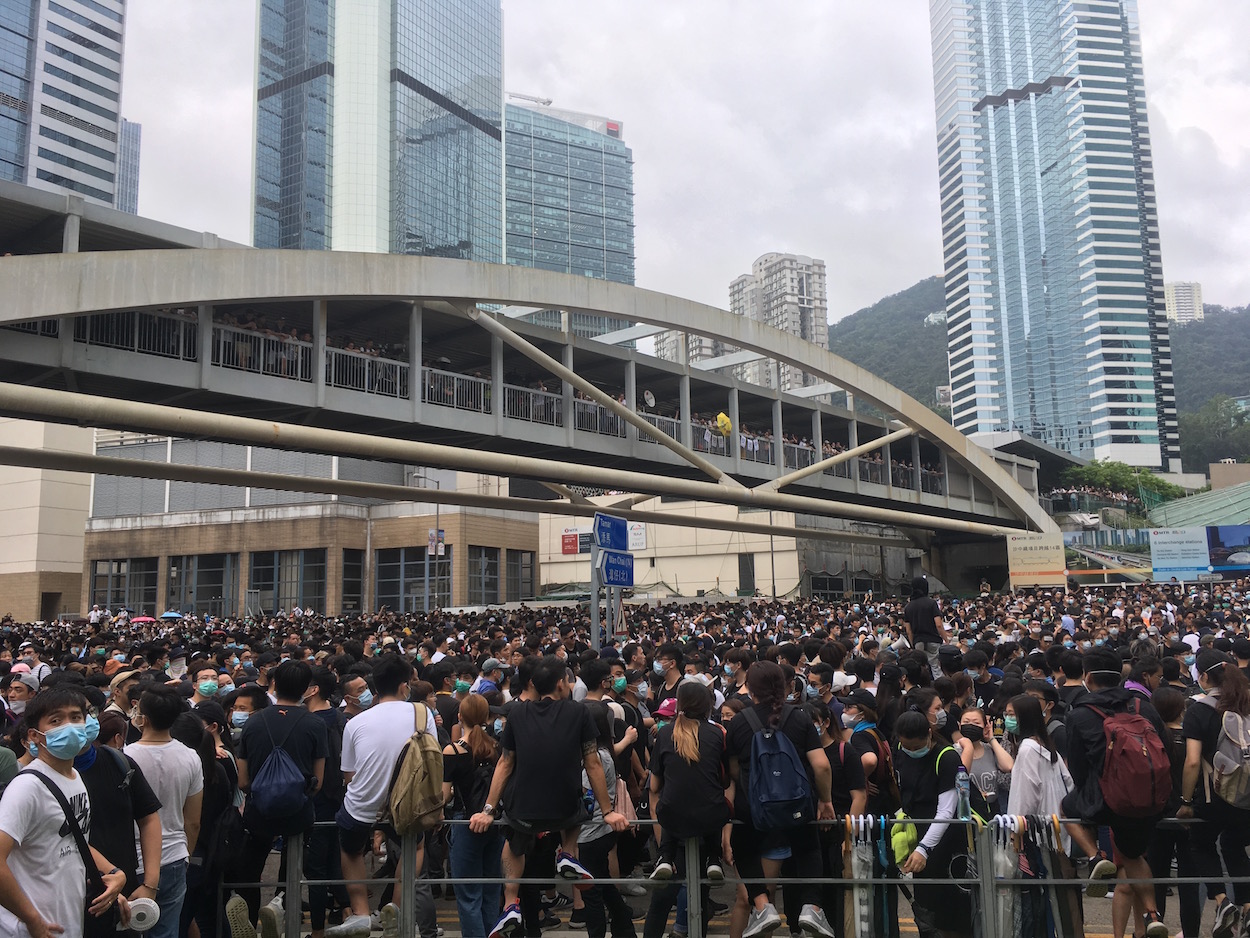by Brian Hioe
語言:
English
Photo Credit: Morrison Lee/Facebook
CHINA CONFIRMED yesterday that it is currently detaining Morrison Meng-chu Lee, a Taiwanese citizen, on charges of “endangering national security”. Lee disappeared after entering Shenzhen from Hong Kong on August 18th for a business meeting. Lee, a businessman who sold electronics, also worked as a volunteer consultant to the mayor of Fangliao.
Shenzhen police previously denied that they were holding Lee, claiming that they had no record of Lee entering Shenzhen. This prompted fears that Lee could have potentially been kidnapped from Hong Kong, which would have made Lee the first case of a Taiwanese citizen detained by Chinese authorities from within Hong Kong.
 Morrison Lee. Photo credit: Morrison Lee/Facebook
Morrison Lee. Photo credit: Morrison Lee/Facebook
The exact cause of Lee’s detention remains unknown. Lee participated in protests in Hong Kong during his time there and it is thought that his phone contained photos of the protests. In China, Lee took pictures of military vehicles amassed in Shenzhen and sent them to friends in Taiwan, which could have been another reason for being detained.
It also remains unknown how long China intends to detain Lee. Taiwanese human rights activist and former DPP party worker Lee Ming-che has been imprisoned in China for over two years on charges of “subverting state power”. Lee is thought to have been imprisoned for attempting to discuss Taiwan’s experiences regarding democratization with Chinese friends on WeChat.
Lee Ming-che’s imprisonment was the first detention of a Taiwanese citizen in China of its kind, stoking fears that China could simply begin treating Taiwanese in China as though they were Chinese nationals. While that has not yet happened, it is feared that Morrison Meng-chu Lee’s detention could be the second such case as Lee’s, seeing as he faces similar charges to Lee Ming-che. Morrison Lee was detained for communications to Taiwanese citizens residing in Taiwan and not to Chinese citizens, as with Lee Ming-che, but this is likely of little consequence to the Chinese government.
Indeed, the Chinese government may hope to intimidate by detaining Lee. British consulate worker Simon Cheng, a Hong Konger, was previously detained in China for fifteen days while returning from a business meeting in Shenzhen. Given that China accuses the current demonstrations which have rocked Hong Kong for the past thirteen weeks of being secretly orchestrated by foreign powers such as the UK, some took the view that Cheng was deliberately targeted because he worked at the British consulate in Hong Kong—especially seeing as Cheng was detained while returning to Hong Kong from Shenzhen.
Cheng was charged with “breaking a state security law” as grounds for his detention, although the Chinese government also released images purporting to show Cheng visiting a sex worker in Shenzhen and claimed that this was why Cheng had traveled to Shenzhen. These images were later proven to be fake. Again, prompting fears that the Chinese government would take to treating Hong Kongers in China simply as Chinese citizens, Chinese Ministry of Foreign Affairs spokesman Geng Shuang claimed that Cheng was treated as “a Chinese person” on the basis of being a Hong Kong citizen, raising that Cheng was not a British national.
 Photo credit: Brian Hioe
Photo credit: Brian Hioe
News of Morrison Lee’s disappearance in China broke in late August but did not prompt any particularly strong responses from either the Taiwanese public or the Tsai administration. Stronger responses have followed after China confirmed that it is holding Lee, with the Tsai administration warning Taiwanese about traveling to Hong Kong or China, and greater discussion of Lee’s detention in the Taiwanese media
One notes that the Tsai administration has been surprisingly quiet on the issue of Taiwanese imprisoned by the Chinese government for their political activities. It has mostly been left to civil society groups to advocate for the release of Lee Ming-che over the past two years, with the Tsai administration often seeking to avoid direct commentary on the detention in such a manner as China could perceive as provocative.
The Tsai administration may fear retaliation from the Chinese government if it is more outspoken on the issue-as in the detention of more Taiwanese in China. Ironically, it could actually potentially benefit the Tsai administration’s reelection chances in 2020 elections to flag the detention of the two Lees in China as illustrative of the dangers of closer political relations with China. On the other hand, it is possible that China will be increasingly emboldened to take actions against Taiwanese in China or Hong Kong in the absence of any stronger response from the Tsai administration. In the wake of Lee’s detention, it is now an increasingly opaque question as to the level of risk for Taiwanese traveling to Hong Kong—and not just China—regarding the possibility of arbitrary detention, particularly for those involved in political activities.

